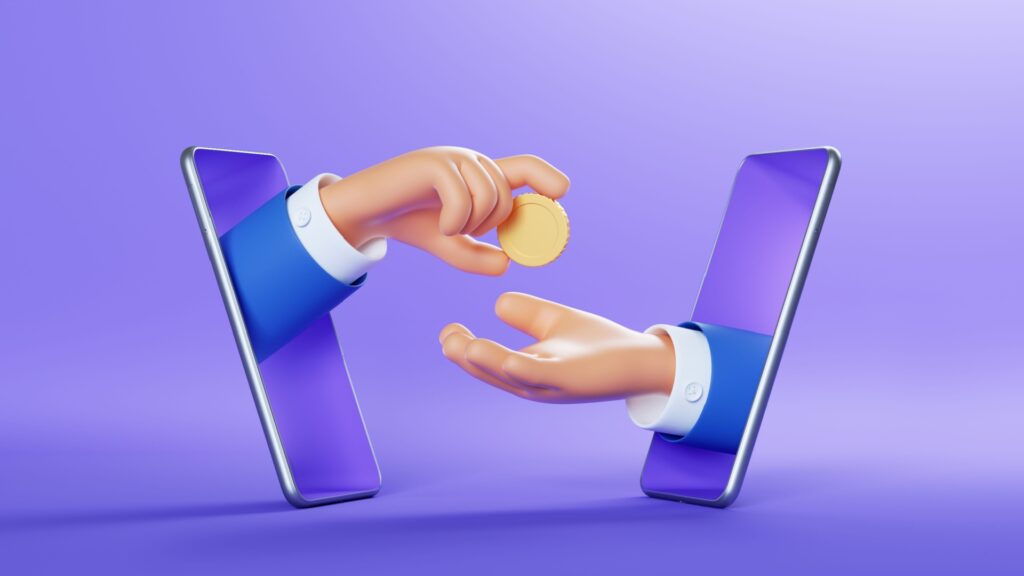In recent years, there has been a noticeable trend in the interaction between content creators and their audiences. With the advent of blockchain technology and cryptocurrencies, new models of engagement are emerging through social tokens. These digital assets, based on blockchain technology, are designed to significantly transform the landscape of the content economy, offering creators a new way to monetize and connect with their fans. Social tokens are generally classified into three main types: creator tokens, which are tied to a specific individual; community tokens, which are used for participation in decentralized autonomous organizations (DAOs); and platform tokens, which are designed to encourage engagement on specific platforms.
What Are Social Tokens?
Social tokens are unique cryptographic assets issued by content creators that can represent the right to participate in various aspects of their work. These tokens can offer exclusive access to content, events, special offers, or merchandise. Examples of social tokens include those issued by musicians, artists, or video bloggers, allowing their fans to gain unique benefits beyond traditional subscription models.
How Do Social Tokens Work?
Content creators typically use decentralized platforms to issue their tokens, allowing them to avoid intermediaries and maintain control over the process. Users can acquire tokens through specialized platforms or marketplaces, after which they become part of the community, gaining the ability to influence decisions or access exclusive content. This creates a deeper connection between creators and their audiences, built on mutual interests and benefits.
A content creator or community wishing to use social tokens begins with their issuance. This could be an individual, such as a musician, blogger, or athlete, or a group of people creating value together. The issuer decides how the token will be structured, its quantity, and its use.
Before launching a token, it is important to determine its value and purpose, and then choose a platform for launch. Social tokens are typically created on common blockchain platforms such as Ethereum or Binance Smart Chain, allowing the use of existing token standards (e.g., ERC-20 or BEP-20). There are also specialized platforms, such as Rally and Roll, that help users easily create and manage their tokens.
Once issued, tokens can be traded or sold on various cryptocurrency exchanges. This provides token holders with the opportunity to realize their investment or participate in market liquidity. Creators can also benefit from the increased value of their tokens as their content's popularity grows.
Social tokens have a transparent market value: people can easily exchange these tokens for a specific amount of fiat currency or another cryptocurrency on an exchange. Unlike NFTs, the spot market for cryptocurrencies makes it easy to see the value of a social token.
Similarities and Differences Between Social Tokens and NFTs

NFTs (Non-Fungible Tokens) are unique digital assets that represent ownership rights to a specific object or content in digital format. Unlike fungible tokens such as Bitcoin or Ethereum, which are interchangeable and can be exchanged for one another, NFTs have individual characteristics and cannot be replaced by similar tokens.
Social tokens and NFTs both belong to the blockchain ecosystem and have their unique characteristics. Both social tokens and NFTs are created using blockchain technology, ensuring a high degree of transparency, security, and decentralization. They use smart contracts to manage their functions and provide the ability to verify authenticity. Both types of tokens represent digital assets: social tokens may be unique to a specific creator or community, while NFTs are always unique and non-fungible by nature. Additionally, social tokens and NFTs are used to create and strengthen communities. Social tokens can serve as a form of “currency” for interaction within a community, while NFTs can represent unique works of art, collectibles, or exclusive content, also fostering interaction within the community.
For example, RON is the personal token of legendary Brazilian footballer Ronaldinho, launched through the leading social token network POOLS. This token gave fans access to the footballer’s universe and allowed RON holders to fully immerse themselves in Ronaldinho’s exclusive content, including exciting events and merchandise, token and NFT channels.
The RAC token is a social token of Grammy-winning producer RAC. His token can be used to access Discord, drops, and unlock exclusive content on the rac.fm website.
However, there are significant differences between social tokens and NFTs:
- Social tokens are financial assets often used to support or reward content creators, profit from their popularity, or participate in specific ecosystems. They can be used as a currency to purchase goods and services within a community. NFTs, on the other hand, represent unique digital goods such as art, music, or virtual items and do not have the same value or function as social tokens. For example, digital artists can monetize their art by creating NFTs and additionally monetize their personal brand by issuing a social token that gives the owner access to Q&A sessions or art lessons.
- Social tokens typically have value based on supply and demand, as well as the creator’s reputation and popularity. Their prices can rise and fall depending on the success of the communities and creators. NFTs, in turn, have a more individual valuation, dependent on the uniqueness and desirability of a specific item, making their value more subjective.
- Social tokens are often considered securities and may be subject to regulation by financial authorities, depending on their structure and use. NFTs are less subject to such regulation, partly due to their uniqueness and specific use as digital goods.
- Social tokens can create more transparent and inclusive economic systems, allowing participants to earn from their content and interact with their audience. NFTs are primarily intended for collecting and represent a more niche market, though they offer their owners interesting opportunities for interaction.
Advantages of Social Tokens

- Monetization of Content: Social tokens provide creators with the opportunity to earn income directly from their fans, reducing reliance on advertising or platform-based models.
- Deeper Audience Engagement: By purchasing tokens, fans do not just remain passive viewers but become active participants in the community, fostering a sense of belonging and involvement.
- Support for Independent Artists: Social tokens can be a significant source of funding for independent creators, allowing them to avoid the pressures of major producers and companies.
- Transparency and Security: Blockchain technology ensures a high level of transparency and security, which is important for both creators and their audiences.
Despite the numerous advantages, social tokens face several challenges:
Firstly, the regulation of cryptocurrencies and tokens remains ambiguous in different countries, which can pose risks for creators and investors. Secondly, there are technical barriers: for many users, cryptocurrencies and blockchain technology remain complex and inaccessible, potentially limiting the audience. Thirdly, as the number of cryptocurrency projects increases, so does the risk of fraud, highlighting the need for user education and awareness.
The Future of Social Tokens
Given current trends, it is expected that social tokens will continue to evolve and integrate into various sectors. They may become an integral part of the digital content ecosystem, creating new opportunities for interaction between creators and their fans. Moreover, as technology advances and awareness of cryptocurrencies grows, social tokens could expand beyond niche communities to reach a broader audience.
Social tokens open new horizons for interaction between content creators and their audiences. They are becoming an important tool in building deeper connections based on mutual interests and values. With the right approach and the resolution of existing limitations, social tokens have the potential to change the game in the content industry, offering creators and their fans new opportunities for collaboration and growth.